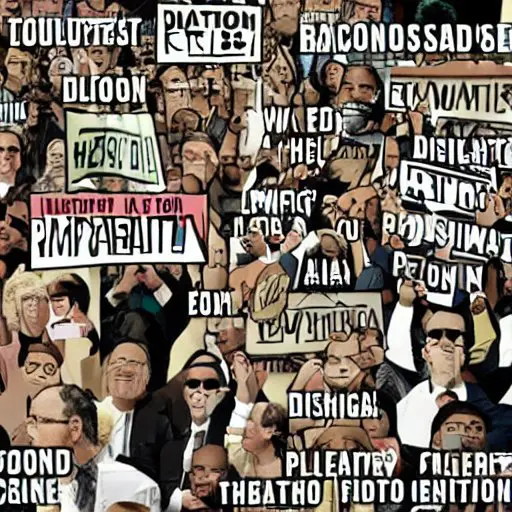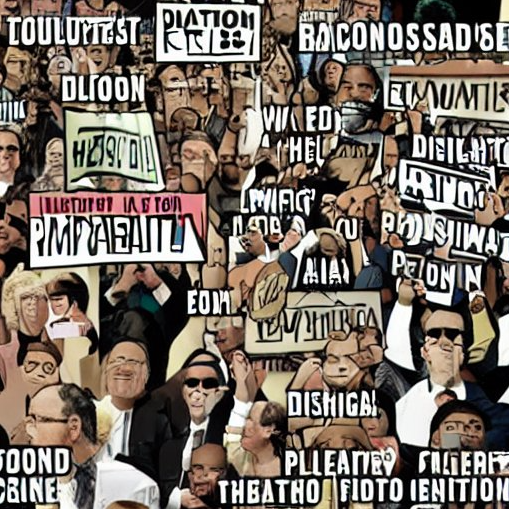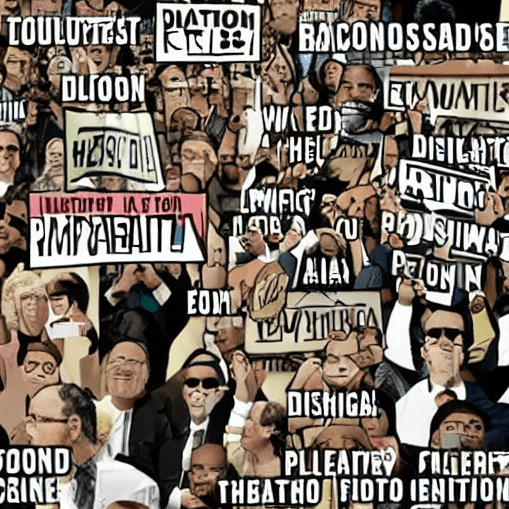Today, we’re diving into the labyrinthine tale of Gamergate—an episode that unfolded in 2014 but echoes into today’s digital sociology. What was Gamergate? It was a kind of canary in the coalmine — a tale of online intrigue, cultural upheaval, and for some, an awakening to the virulent undercurrents of internet anonymity.
I. Origins and Triggering Events: The Spark That Lit the Fire
In August 2014, an unassuming blog post titled “The Zoe Post” by Eron Gjoni set off a chain reaction that few could have foreseen. Through this post, which detailed his personal grievances against Zoe Quinn, a game developer, the seed of misinformation was sown. The post falsely implicated Quinn in an unethical affair with Nathan Grayson, a gaming journalist, suggesting she had manipulated him for favorable coverage of her game Depression Quest. This unfounded claim was the initial spark that ignited the raging internet inferno of Gamergate.
The allegations quickly spread across forums like 4chan, a breeding ground for anonymity and chaos. Here, the narrative morphed into a menacing campaign that took aim at Quinn and other women in the gaming industry. The escalation was not just rapid—it was coordinated, a harbinger of the kind of internet and meme warfare that has since become all too familiar.
II. Targets of Harassment: The Human Cost of Online Fury
What followed was an onslaught of harassment against women at the heart of the gaming industry. Zoe Quinn wasn’t alone in this; Anita Sarkeesian and Brianna Wu also bore the brunt of this vicious campaign. This wasn’t just trolling or mean tweets—it was a barrage of rape threats, death threats, and doxing attempts, creating a reality where digital assault became a daily occurrence.
Others got caught in the crossfire, too—individuals like Jenn Frank and Mattie Brice, who dared to defend the victims or criticize Gamergate, found themselves subject to the same malevolent noise. Even Phil Fish, a game developer, saw his private data leaked in a cruel display of digital vigilantism.
III. Nature of the Harassment: When Digital Attacks Go Beyond the Screen
Gamergate painted a harrowing picture of the scope and scale of online harassment. Orchestrated attacks didn’t stop at vitriolic tweets; they extended to doxing, where victims’ personal information was broadcast publicly, and “swatting,” a dangerous “prank” that involves making false police reports to provoke a SWAT team response.
Platforms like Twitter, 4chan, and its notorious sibling 8chan were the stages upon which this drama played out. Here, an army of “sockpuppet” accounts created an overwhelming maelstrom, blurring the lines between dissent and digital terrorism.


IV. Motivations and Ideology: Misogyny and Political Underpinnings
At its core, Gamergate was more than just a gamers’ revolt; it was a flashpoint in a broader cultural war, defined by misogyny and anti-feminism. This was a resistance against the shifting dynamics within the gaming world—a refusal to accept the increasing roles women were assuming.
Moreover, Gamergate was entangled with the burgeoning alt-right movement. Figures like Milo Yiannopoulos latched onto the controversy, using platforms like Breitbart News as megaphones for their ideas. Here, Gamergate served as both a symptom and a gateway, introducing many to the alt-right’s narrative of disenchantment and defiance against progressive change.
Gamergate’s Lasting Legacy and the “Great Meme War”
Gamergate wasn’t just a flashpoint in the world of gaming; it was the breeding ground for a new kind of online warfare. The tactics honed during Gamergate—coordinated harassment, the use of memes as cultural weapons, and the manipulation of platforms like Twitter and 4chan—became the playbook for a much larger, more consequential battle: the so-called “Great Meme War” that helped fuel Donald Trump’s 2016 presidential campaign.
The very same troll armies that harassed women in the gaming industry turned their attention toward mainstream politics, using the lessons learned in Gamergate to spread disinformation, amplify division, and create chaos. Memes became more than just jokes; they became political tools wielded with precision, reaching millions and shaping narratives in ways traditional media struggled to keep up with. What began as a seemingly insular controversy in the gaming world would go on to sow the seeds of a far more disruptive force, one that reshaped modern political discourse.
The influence of these tactics is still felt today, as the digital landscape continues to be a battleground where information warfare is waged daily. Gamergate was the first tremor in a cultural earthquake that has redefined how power, politics, and identity are contested in the digital age. As we move forward, understanding its origins and its impact on today’s sociopolitical environment is essential if we hope to navigate—and counter—the dark currents of digital extremism.
In retrospect, Gamergate wasn’t an isolated incident but a prelude, a trial run for the troll armies that would soon storm the gates of political power. Its legacy, while grim, offers critical insights into the fragility and volatility of our online spaces—and the urgent need for vigilance in the face of future campaigns of digital manipulation.






























